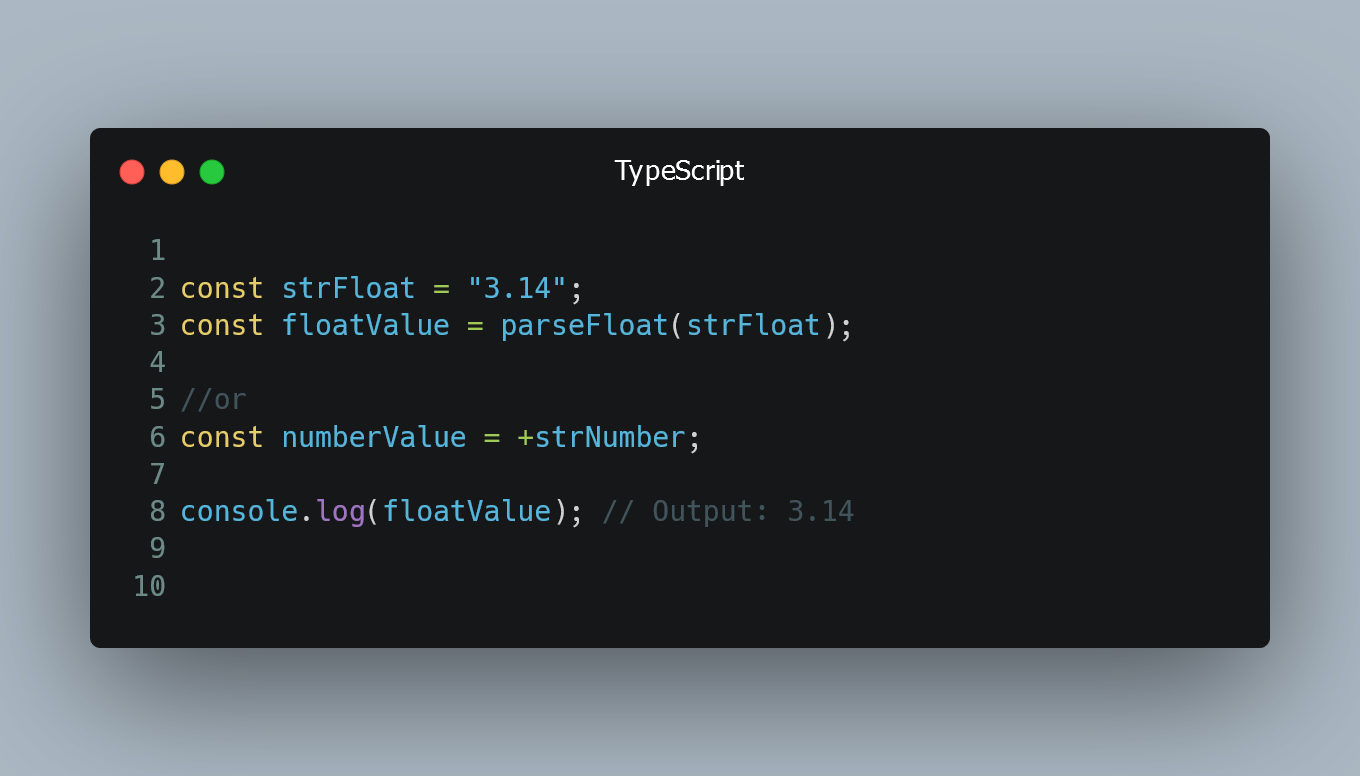
In TypeScript, you may need to convert a string to a number for various reasons, such as performing mathematical operations or working with numeric data.
#1. Using parseInt() Function
The parseInt() function is a built-in JavaScript method that converts a string to an integer number.
const strNumber = "42";
const numberValue = parseInt(strNumber);
console.log(numberValue); // Output: 42
In this example, we have a string strNumber containing the value "42". The parseInt() function converts the string to an integer, and the variable numberValue now holds the numeric value 42.
#2. Using parseFloat() Function
Similarly, if you want to convert a string to a floating-point number, you can use the parseFloat() function.
const strFloat = "3.14";
const floatValue = parseFloat(strFloat);
console.log(floatValue); // Output: 3.14
In this example, the string strFloat contains the value "3.14". The parseFloat() function converts the string to a floating-point number, and the variable floatValue now holds the numeric value 3.14.
#3. Using Unary Plus Operator
Another simple way to convert a string to a number is by using the unary plus operator (+).
const strNumber = "42";
const numberValue = +strNumber;
console.log(numberValue); // Output: 42
In this example, the unary plus operator is applied to the string strNumber, converting it to a numeric value, which is then assigned to the variable numberValue.
#4. Using Number() Constructor
The Number() constructor can also be used to convert a string to a number.
const strNumber = "42";
const numberValue = Number(strNumber);
console.log(numberValue); // Output: 42
In this example, the Number() constructor converts the string strNumber to a numeric value, which is stored in the variable numberValue.
Keep in mind that when converting a string to a number, TypeScript may throw a runtime error if the string cannot be parsed as a valid number. To handle such scenarios, consider using error handling mechanisms like isNaN() to check if the result is NaN (Not-a-Number).
0 Comment

